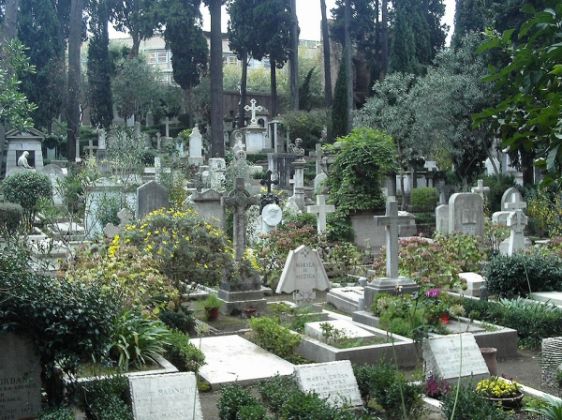Foreign nationals resident in Italy should make sure that their wills are in accordance with Italian inheritance laws
An article on inheritance may not seem a bright and breezy way to begin the New Year, but having your affairs in order is always a good start. For foreign nationals resident in Italy a final will and testament lodged in your country of origin may not be enough to manage your assets in Italy. According to international law, any fixed assets (i.e. property) or liquid assets (i.e. bank accounts) in Italy fall under Italian law when it comes to the distribution of inheritance.
Italian law on succession is grounded on the principle of protecting and continuing family heritage and therefore operates along the lines of forced inheritance. Even if a will is left, the law ensures that the immediate members of the deceased’s family are not deprived of their minimum statutory share of the estate (quota di legittima or successione necessaria). So it is not simply a question of the formalities of drawing up the will but it is also a question of ensuring that the minimum shares granted by law to the various beneficiaries are complied with. This also applies to people residing abroad who have relatives in Italy. If the deceased leaves no surviving spouse or children, the law ensures a share of the estate to ascendants and descendants up to the fourth degree of kinship, i.e. parents, siblings and their descendants, uncles or aunts and their descendants.
Generally the following relatives will be entitled to the following minimum statutory shares if a will is in place (see side notes for what happens if there is no will):
If the deceased leaves a spouse and one child, then the minimum statutory share is that a third of the estate goes to the spouse and a third to the child.
If the deceased leaves a spouse and more than one child, then the minimum statutory share is that a quarter of the estate goes to the spouse and half in equal shares to the children.
If the deceased leaves no spouse but one child, then half of the estate goes to the child.
If the deceased leaves no spouse but more than one child, then two thirds of the estate is divided into equal shares for each child.
If there is only a spouse and no children, then the spouse is entitled to half the estate and the ascendenti to a quarter.
If there are only ascendenti, then a third of the estate is divided between ascendenti or descendenti (in equal parts).
If these rules are not followed, excluded parties or those who receive less than the minimum statutory share of the estate can contest the will in the Italian courts. Whatever the provisions in the will, the Italian courts will then re-distribute the assets of the estate in accordance with the above rules.
The dichiarazione di successione (declaration of succession) bearing the details of the beneficiaries must be submitted by one of the beneficiaries (but legal advice would be helpful to make sure that everything is done correctly) to the Agenzia delle Entrate within one year of the death of the deceased. Only after the required taxes are paid may the distribution of the assets of the estate proceed. Under Italian law a beneficiary is entitled to estate assets but also becomes subject to the deceased’s debts and liabilities. If the debts exceed the assets a beneficiary has the right to renounce his or her share in the estate to avoid the financial burden.
Inheritance claims in Italy are currently subject to two taxes, estate tax and property transfer tax.
If the deceased was resident in Italy, Italian estate tax (imposte sulle successioni) is applied to all the assets of the deceased worldwide. In the case of non-residents, the Italian inheritance tax rate is calculated on the assets located in Italy.
The estate tax applies to the entire net value of the estate, including movable and immovable assets. This amount is net of liabilities and all deductible expenses, such as debts of the deceased, medical and funeral expenses.
There are different rates that are applied to each heir according to the degree of kinship to the deceased, as follows:
For spouses and children it is four per cent of the estate value, with a tax-free allowance of €1 million per beneficiary.
For siblings and close relatives (up to fourth degree of kinship) it is six per cent. Each sibling is entitled to a tax-free allowance of €100,000
For any other claimant on the estate it is eight per cent, without a tax-free allowance.
When one or more Italian properties are left, the succession is also subject to property transfer taxes, which are three per cent of the property value on record at the ufficio catastale or land registry office.
These taxes are the following:
1. Mortgage tax (imposta ipotecaria), that is two per cent of the property value on record or €168 if the property will be used as the beneficiaries' primary habitation (prima casa).
2. Land registration tax (imposta catastale), that is one per cent of the property value on record or €168 if the property will be the main house (prima casa) of the beneficiary.
Although under Italian law an executor to the estate is not required and beneficiaries may claim their share of assets directly, it is advisable to seek the assistance of a lawyer who can help in assuring that you receive what is rightfully yours, that properties are correctly registered in the names of the beneficiaries, and that the taxation on the estate is correct.
DYING WITHOUT A WILL
If you die intestate in Italy the estate is distributed according to
successione legitima in the following manner :
A surviving spouse with one child - each would receive half.
A surviving spouse with more than one child - spouse one third and the remaining two thirds are split between the children.
Only a single remaining child inherits the total estate.
Only children - estate divided equally
Spouse and ascendants and descendants - two thirds to the spouse and one third among the ascendants and descendants.
Only ascendants and or descendants. The inheritance is awarded respecting the closeness of kinship, i.e. first parents and brothers and sisters, then aunts and uncles and then cousins. For example if a person dies and their only surviving relatives were an aunt and a cousin, the aunt would inherit because she is third-degree kin and not the cousin who is fourth-degree kin.
The state will track beneficiaries up until the sixth degree of kin; if none exists the state is the sole beneficiary of the estate.
WAYS OF MAKING A WILL
Under Italian law there are three different ways of making a valid will:
Handwritten will (testamento olografo). This is a document personally handwritten by the person making the will (testator), signed and dated. There is no need for witnesses and there is no need for an attestation clause stating that these are the testator’s wishes.
Formal will (testamento pubblico). This is a document drafted by an Italian notary on the instructions of the testator, read out by the notary to ensure that it complies with the wishes of the testator and signed by the testator in the presence of at least three witnesses. The will is then lodged with the Italian notary. While it provides reassurance that the will does not get lost or disregarded, it involves a cost (notary fees), and its contents are immediately disclosed to third parties (witnesses), who may not keep it confidential.
Secret will (testamento segreto). This is a will drafted or written by the testator and placed in a sealed envelope which is then delivered to an Italian notary. The notary fees are reduced and the contents of the will remain secret until after the death of the testator, when the sealed envelope is opened.
In Italy verbal (nuncupative) wills are not accepted as legitimate, even if witnessed, in order to avoid fraudulent claims by people who may have been present at the time of death and claim that the deceased expressed their last wishes to them.
Studio Legale Annino, tel. 0696153083, www.annino-lawfirm.com – avv.annino@libero.it
8 January edition Wanted in Rome
























